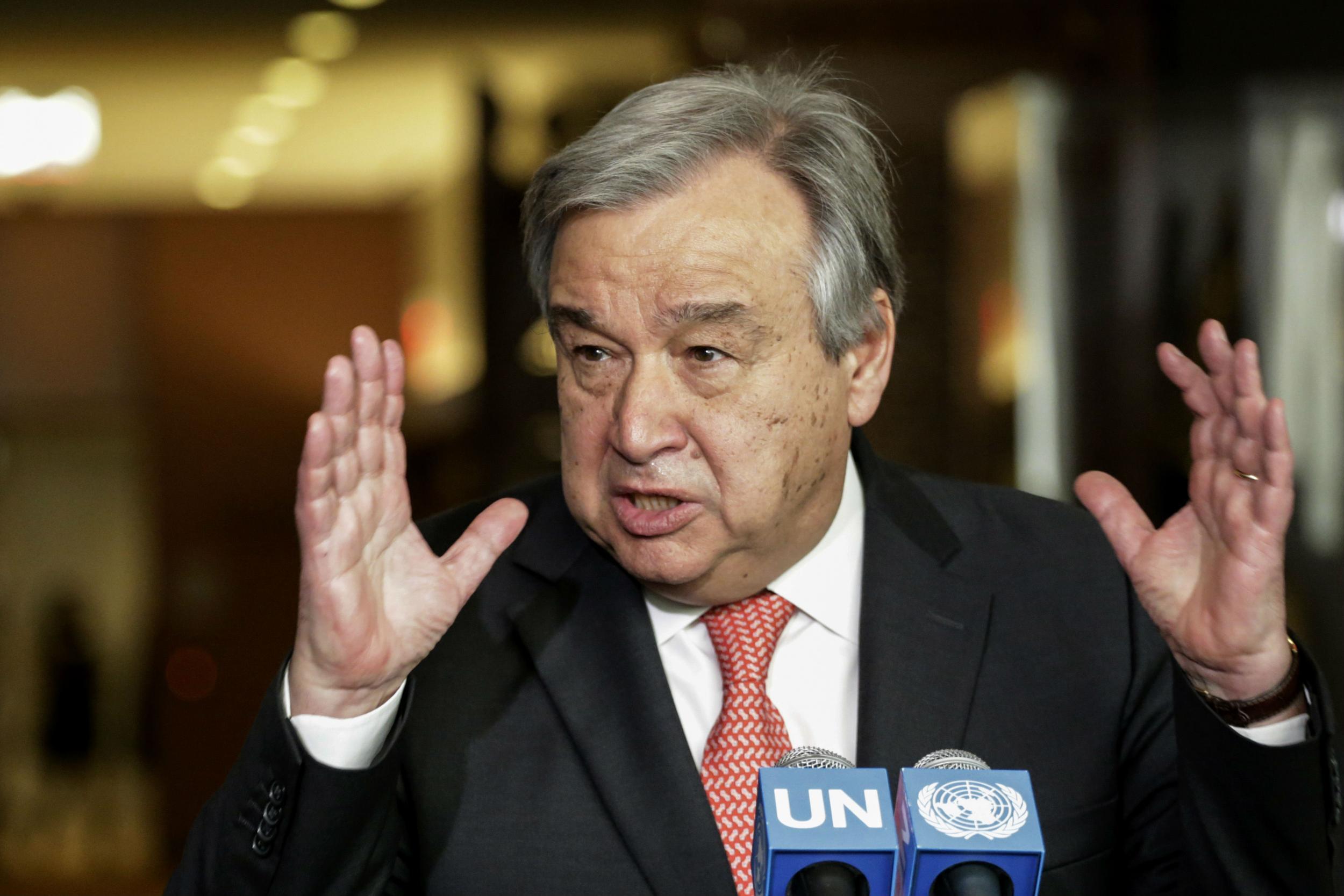World powers at odds in search for consensus candidate to replace Ban Ki-Moon as UN Secretary General
Guterres of Portugal tops poll for third time, but some countries still waver

The third secret straw poll in the United Nations Security Council on candidates to succeed Ban Ki-Moon as UN Secretary General suggests consensus remains elusive. While Antonio Guterres of Portugal led the pack on Monday, three countries expressed doubts about him.
The more surprising change compared to the last straw poll, taken earlier this month, was the improved performance of Miroslav Lajcak, the Foreign Minister of Slovokia, who came in second place. As in the previous rounds, each of the Security Council members were asked to assign ‘encourage’, ‘discourage’ or ‘no opinion’ beside the names of the ten declared candidates.
As the process of choosing a new chief of world diplomacy kicked off earlier this year there was some shared sense that an East European would suit - the region has never sent one of their own to the top floor of UN headquarters - and possibly also a woman, for the first time.
A former Prime Minister of Portugal and until recently the head of United Nations High Commission for Refugees, UNCHR, where he served for a decade, Mr Guterres became a favourite when he came out top in the last straw poll taken at the start of August. However, Russia was reportedly one of two countries marking him with a ‘discourage’, which looked problematic as Moscow has veto power over the process. He had won the first straw poll also.
“I would say Guterres remains the head of the pack and is the only runner that has consistently been ahead of everyone else,” one western diplomat at UN HQ observed. “Whether we have deadlock depends on whether those discourages for Guterres are substantial in nature or tactical.” Those countries registering discourages may want to exact a price for lifting them.
Meanwhile, the runes for those campaigning for the UN to choose its first female leader did not seem promising on Monday night. According to first leaks of the outcome on Twitter, the highest scorer among the five women candidates was Irina Bokova of Bulgaria. She was the third favourite in the latest poll. However, she had five ‘discourages’ against her.
Some western countries have proved wary of Ms Bokova’s candidacy, wondering privately if the Bulgaria could be persuaded to replace her with another of its nationals - Kristalina Georgieva, currently an EU Commissioner in Brussels. There is nothing to stop another candidate jumping in even now, but Ms Georgieva has not given any indication that she is tempted.
There was some suggestion that Helen Clark, the current head of the United Nations Development Programme and a former Prime Minister of New Zealand, might pull out of the contest after coming in seventh place in Monday’s poll. Ms Clark, who has been a controversial figure at the UNDP, had a debilitating eight ‘discourages’ against her name.
As in the first two polls, the standings were leaked out rapidly to the press at UN headquarters in New York, in violation of the usual diplomatic etiquette under which the governments of all the candidates are informed first along with the President of the UN General Assembly.
A failure to reach a consensus ahead of a declared deadline of late October could lead to a debilitating crisis for the UN Security Council, which counts Britain, the US, China and France as the other veto-wielding members, quite possibly pitting the US against Russia. Once a consensus candidate is chosen, the procedure is to pass the name to the General Assembly for a vote to approve it. Mr Ban steps down at the end of the year.
New Zealand Prime Minister John Key had said before the vote that he would continue to back Ms Clark, who was seventh in the last poll also. He argued that a deadlock in the Council could yet mean she could emerge as a compromise candidate.
Join our commenting forum
Join thought-provoking conversations, follow other Independent readers and see their replies
Comments
Bookmark popover
Removed from bookmarks